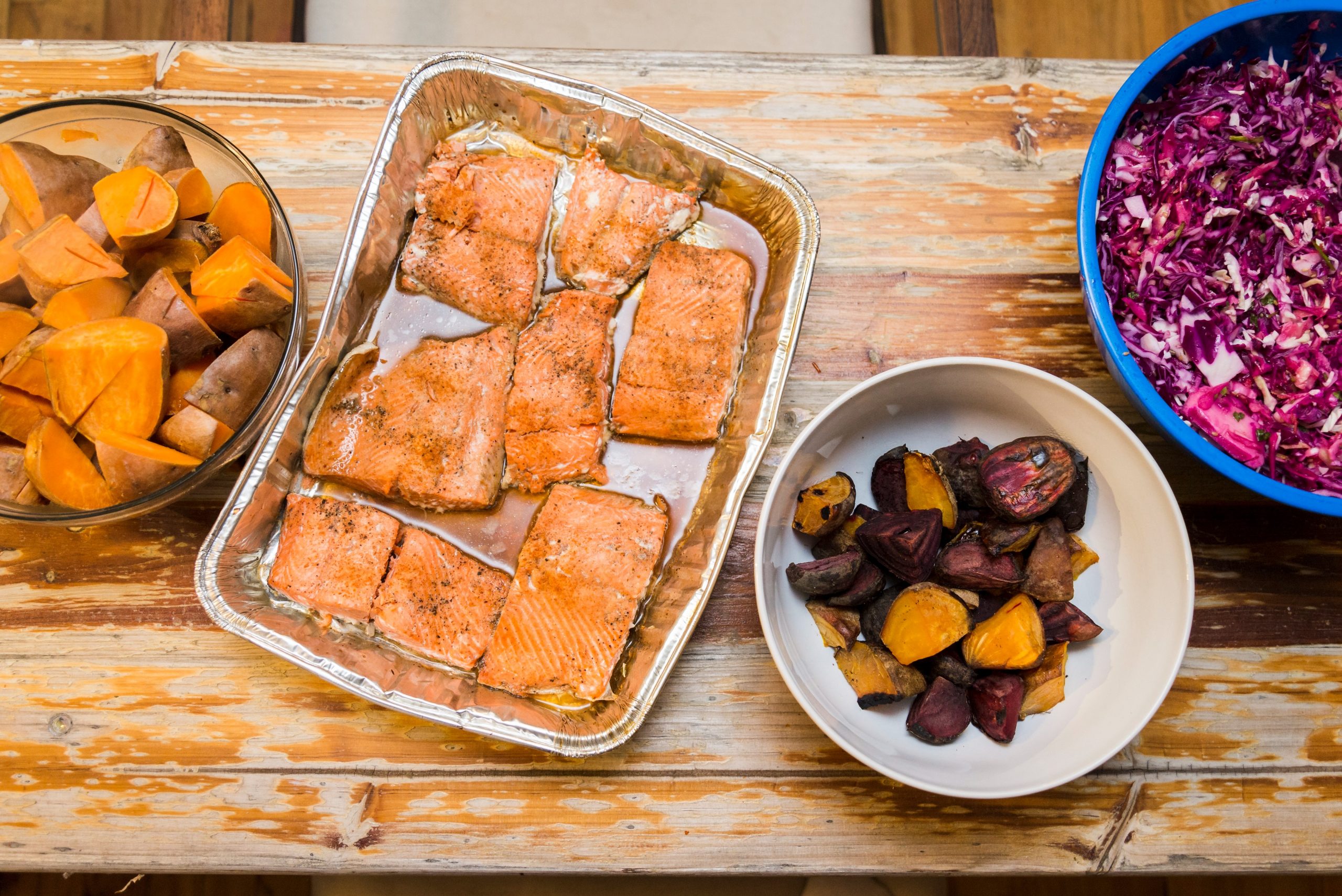
Optimal Nutrition for Men Over 40
As men cross the threshold of 40, their bodies undergo changes that demand a recalibrated approach to nutrition. Declining testosterone levels, a slower metabolism, and increased risks for conditions like heart disease and muscle loss make a nutrient-focused diet essential for maintaining strength, energy, and long-term health. This blog post outlines the key elements of optimal nutrition for men over 40, providing practical strategies to support vitality and well-being.
Understanding Evolving Nutritional Needs
After 40, men experience a gradual decline in testosterone, which can lead to reduced muscle mass, lower energy, and changes in body composition. Metabolism slows, increasing the likelihood of weight gain if dietary habits remain static. The risk of chronic conditions such as cardiovascular disease, type 2 diabetes, and prostate issues also rises. Bone health, while less emphasized than in women, remains a concern as density begins to wane.
To counter these shifts, men over 40 need a diet that supports muscle maintenance, heart health, and metabolic function. While caloric needs may decrease slightly, the focus should be on nutrient-dense foods that deliver high-quality macronutrients and micronutrients to fuel an active lifestyle.
Macronutrients: The Foundation of a Balanced Diet
Protein: Preserving Strength and Muscle
Protein is critical for maintaining muscle mass, which supports metabolism and physical performance. Men over 40 should target 0.8–1.2 grams of protein per kilogram of body weight daily, with higher intakes (up to 1.6 g/kg) for those engaged in strength training. High-quality protein sources include:
- Lean meats: Chicken breast, turkey, and lean beef or pork.
- Fish: Salmon, tuna, and mackerel, rich in omega-3s for heart health.
- Plant-based proteins: Lentils, black beans, edamame, and quinoa.
- Eggs and dairy: Greek yogurt and cottage cheese offer protein and additional nutrients like calcium.
Distributing protein intake evenly across meals supports muscle repair, stabilizes blood sugar, and enhances satiety, particularly after workouts.
Carbohydrates: Sustained Energy for Active Lifestyles
Carbohydrates fuel physical and mental performance, but choosing complex carbs over refined ones is key. Men over 40 should prioritize:
- Whole grains: Oats, brown rice, barley, and whole-grain bread.
- Vegetables: Starchy options like sweet potatoes and nutrient-rich choices like spinach and broccoli.
- Fruits: Berries, bananas, and apples, which provide fiber and antioxidants.
Fiber is crucial for digestive health and cholesterol management, with a target of 25–30 grams daily. High-fiber diets also aid weight control by promoting fullness.
Fats: Supporting Hormones and Heart Health
Healthy fats are essential for testosterone production and cardiovascular wellness. Men over 40 should emphasize unsaturated fats while minimizing trans fats and excessive saturated fats. Key sources include:
- Monounsaturated fats: Olive oil, avocados, and nuts like almonds and cashews.
- Omega-3 fatty acids: Found in fatty fish, walnuts, and chia seeds, these reduce inflammation and support cognitive health.
- Limited saturated fats: Grass-fed beef and butter can be included sparingly.
Aim for 20–35% of daily calories from fats, avoiding processed foods high in trans fats, which elevate LDL cholesterol and heart disease risk.
Micronutrients: Targeted Support for Aging
Calcium and Vitamin D: Bone and Muscle Support
While osteoporosis is less common in men, maintaining bone health is still important as density declines with age. Calcium and vitamin D also support muscle function. Men should aim for:
- Calcium: 1,000 mg/day from dairy (milk, cheese, yogurt), fortified plant milks, kale, or almonds.
- Vitamin D: 600–800 IU/day from sunlight, fatty fish, egg yolks, or supplements if levels are low.
Weight-bearing exercises like resistance training complement dietary efforts to maintain bone and muscle strength.
Magnesium: Energy and Stress Management
Magnesium supports energy production, muscle recovery, and stress regulation, which can be disrupted by aging and lifestyle demands. Aim for 400–420 mg/day from foods like pumpkin seeds, spinach, whole grains, and dark chocolate. Supplements may be considered under medical guidance if dietary intake falls short.
B Vitamins: Boosting Energy and Brain Health
B vitamins, particularly B6, B12, and folate, are vital for energy metabolism, cognitive function, and red blood cell production. Absorption of B12 may decline with age, so fortified foods or supplements may be necessary. Include:
- B6: Chickpeas, potatoes, and fortified cereals.
- B12: Meat, fish, eggs, or fortified plant-based milks.
- Folate: Lentils, asparagus, and avocados.
Zinc: Testosterone and Immune Support
Zinc supports testosterone levels and immune function, both of which are critical for men over 40. Aim for 11 mg/day from oysters, beef, pumpkin seeds, or lentils. Avoid excessive supplementation, as it can interfere with other nutrients.
Hydration: A Cornerstone of Health
Dehydration can exacerbate fatigue, impair exercise performance, and affect cognitive clarity. Men over 40 should aim for 10–12 cups of water daily, adjusted for activity and climate. Water-rich foods like cucumbers, oranges, and soups contribute to hydration, while moderating alcohol and caffeine prevents dehydration and supports sleep quality.
Practical Tips for Implementation
Meal Planning for Consistency
Planning meals ensures a balance of nutrients and reduces reliance on processed foods. A sample day might look like:
- Breakfast: Oatmeal with walnuts, berries, and a scoop of Greek yogurt.
- Lunch: Grilled chicken with quinoa and steamed broccoli.
- Snack: A banana with a handful of almonds.
- Dinner: Baked salmon with sweet potato and a mixed green salad.
Batch-preparing proteins, grains, and vegetables streamlines meal prep for busy schedules.
Mindful Eating for Better Choices
Practicing mindful eating—focusing on hunger cues and savoring meals—helps prevent overeating and fosters healthier food choices. Eating without distractions and chewing slowly improves digestion and satisfaction.
Supplementation When Needed
A food-first approach is ideal, but supplements can address specific gaps. Common options for men over 40 include:
- Multivitamin: To cover minor nutrient deficiencies.
- Omega-3s: If fish consumption is low.
- Vitamin D: For those with limited sun exposure.
Consult a healthcare provider before starting supplements to ensure safety and necessity.
Lifestyle Integration
Nutrition is most effective when paired with other healthy habits. Strength training 2–3 times per week preserves muscle mass, while cardio supports heart health. Prioritizing 7–9 hours of sleep regulates appetite and stress hormones. Stress management techniques, such as meditation or deep breathing, can lower cortisol levels, which impact weight and energy.
Addressing Common Challenges
Weight Management
A slower metabolism and reduced muscle mass can lead to weight gain. Focus on nutrient-dense foods, portion control, and regular exercise rather than crash diets, which can deplete muscle and nutrients.
Time Constraints
Busy lifestyles can derail healthy eating. Quick options like pre-chopped vegetables, canned beans, and frozen fruits simplify meal prep while maintaining nutritional quality.
Energy and Stamina
Low energy is a common complaint. Balancing meals with protein, carbs, and fats, staying hydrated, and ensuring adequate B vitamins and magnesium can sustain energy levels throughout the day.
Conclusion
Optimal nutrition for men over 40 is about fueling the body with high-quality nutrients to navigate the challenges of aging. By prioritizing protein, complex carbohydrates, healthy fats, and essential micronutrients, men can maintain strength, energy, and resilience. Pairing mindful eating with exercise and stress management creates a holistic approach to thriving in this dynamic phase of life. Start with small changes—like adding a serving of vegetables to dinner—and build habits that support long-term health and vitality.

